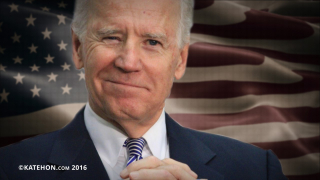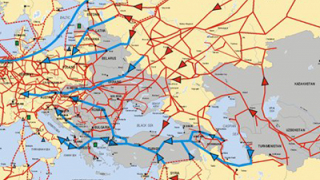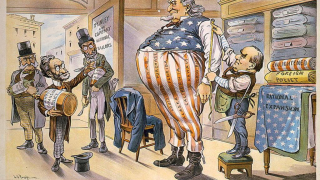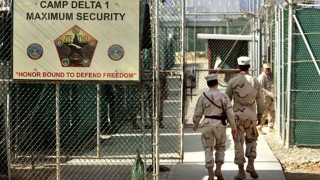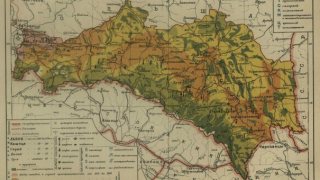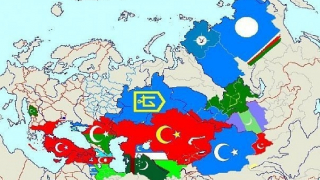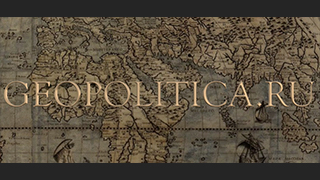The rise and fall of Neo-Ottomanism in Syria
Since the beginning of the crisis in Syria, the statesmen in Turkey were sure that one of the main keys for regional hegemony in the Middle East passes through Syria. In June 2011, a Western diplomat revealed to AFP, that Recep Tayyip Erdogan offered President Assad via his foreign minister a plan that includes the Syrian President is to ensure between a quarter and a third of ministers in his government to be members of the outlawed Muslim Brotherhood. On the other hand, Erdogan will commit to use all his influence to end the rebellion. The plan was considered by many Syrian political analysts as a soft penetration of the Syrian government, in preparation to change the Arab Nationalist character of Syria. The offer was rejected by President Assad and the AKP government declared its full support to the “opposition groups” and thus the formation of the so called “Free Syrian Army” (FSA) came in 29 July 2011, and the Turkish backed “Syrian National Council” (SNC) announced on 23 August 2011. These escalatory steps came one month after Erdogan’s offer, which breached the UN charter and blatantly violated the Syrian sovereignty.
Before going into the reasons and motives of Erdogan and Davutoğlu, the “zero problems policy” is briefly explained in the Turkish ministry of foreign affairs website as: “Aware that development and progress in real terms can only be achieved in a lasting peace and stability environment, Turkey places this objective at the very center of her foreign policy vision. This approach is a natural reflection of the “Peace at Home, Peace in the World”.
However, in order to understand the Turkish policy shift from Zero problems with Neighbors to Zero Friendship with neighbors, one should dive in the history of the Ottoman Empire to understand the motives of the neo-Ottoman ambitions of Erdogan and his foreign minister Davutoğlu. As William Faulkner said― “The past is not dead. In fact, it's not even past.”
Historically, Ottomans that came from the Balkans succeeded to extend their influence in Mesopotamia, Egypt, the Red Sea, the Arabian Peninsula, North and East Africa through Syria. That’s why they called Syria the Honorable Levant “Sham Sharif”.
Erdogan’s Neo-Ottoman dream revived in the light of the so called “Arab Spring”. Islamists and the Muslim brotherhood succeeded during 2011 and 2012 to reach power in Tunisia and Egypt; it was a great political moment for Erdogan to extend his hands to the MENA region. The Islamists and the Muslim brotherhood of Syria have paved the way for further meddling of Erdogan in the Syrian affairs. The AKP government provided all financial and logistic facilities to the political and military wings of the Syrian opposition, namely the “Free Syrian Army”. Moreover, the Turkish intelligence has turned a blind eye to the flow of thousands of foreign mercenaries\terrorists through the Turkish airports entering Syria. It was a policy of state terrorism by Erdogan against his neighbor. However, "When you turn your neighbor into Afghanistan, you will become a Pakistan".
By the 11th of May 2013, two car bombs exploded in Reyhanli only 5 km from the Cilvegozu border gate with Syria, leaving 46 dead and more than 100 injured. It was the worst terror attack Turkey has witnessed. Tulin Daloglu a columnist for Al-Monitor's Turkey Pulse and a foreign policy analyst rightly described Turkey’s rigid foreign policy as “What is striking, however, is that the Erdogan government does not seem to tolerate any criticism of its Syria policy. Turkey’s geography has always been surrounded by deadly risks, and intervening in Syria’s domestic affairs was not the smartest thing that Turkey could have done for its own security interests. Unfortunately, Ankara’s policies are not so innocent in today’s tragedy. Turks now question whether it was worth it to risk Turkish lives by intervening in Syria’s domestic politics.”
In a recently published book “Turkish Foreign Policy” by Muriel Mirak-Weissbach
and Dr. Jamal Wakim; the authors documented the rise of the AKP government and their neo-ottoman project. Since the beginning of the AKP rule, Ahmet Davutoğlu believed that Turkey is heading towards a leadership role because “it is a modern Islamic state, with a great Ottoman heritage and geostrategic, geopolitical and geo-economic position”. Although Davutoğlu refused the allegations that he is seeking the reformation of an Ottoman empire, he suggested a British style commonwealth instead. That means if Britain was the successor of the British Empire, then Turkey is the successor of the Ottoman Empire. Therefore, Davutoğlu’s unofficial Islamic Commonwealth is a devious plan to embrace the “persecuted and insulted” Arab and Muslim populations under Turkey’s banner. And when Davutoğlu was asked how Turkey is able to do these changes, he once again referred to Turkey’s “great Ottoman history in addition to modernization”.
Mirak-Weissbach and Wakim also believe there is a contradiction between Davutoğlu’s pledge for equality in international relations and the demand for areas of influence in Turkey’s backyard, namely the Middle East.
However, due to several factors Turkey’s Neo-Ottoman tendencies have begun to shrink:
1- The repercussions of terrorism in Syria have posed serious challenges to the internal stability in Turkey. Erdogan and the architects of his foreign policy began to reconsider their damaged relations, especially with Iran and Iraq, two key states to the doors of “People’s Palace”.
Even the Turkish President Abdullah Gul urged in his address to his country’s ambassadors to re-calibrate Turkey’s policy towards Syria, saying “I am of the opinion that we should re-calibrate our diplomacy and security policies given these facts in the south of our country and given the threat perception of (political) centers around us,” Foreign Minister Ahmet Davutoğlu was also present during Gül’s speech.
2- The overthrow of President Morsi and cutting the bridges with Egypt's military-backed interim government who listed the Muslim Brotherhood as a terrorist organization.
3- The resignation of Emir Hamad bin Khalifa al Thani and passing the reigns to his son Tamim. The resignation was considered by many strategic analysts as an isolation of the tiny Qatar’s role after the “Arab Spring” while giving Saudi Arabia the role of spearhead against Iran and Syria.
4- The Turkish-Qatari backed FSA faded in the shadow of Saudi-backed Syrian Islamic Front (SIF) and other Salafi and Takfiri groups most importantly the Islamic State in Iraq and Sham (ISIS), which has been active in Iraq since the American invasion of 2003, and aims to create an Islamic state in Iraq and it has expanded its operations to Syria.
The SIF coordinates extensively with al-Qaeda affiliate Jabhat al-Nusra which is listed in the American Administration Foreign Terrorist Organizations list. The consequences of adding al-Nusrah Front as a new alias for al-Qaeda in Iraq include “a prohibition against knowingly providing, or attempting or conspiring to provide, material support or resources to, or engaging in transactions with, al-Nusrah Front, and the freezing of all property and interests in property of the organization that are in the United States, or come within the United States or the control of U.S. persons.” However, the Americans have no guaranty that these weapons would fall in the hands of Al-Nusra or ISIS because hundreds of fighters are changing their ranks from FSA to SIF, ISIS and Al-Nusra.
The SIF continues to coordinate with Jabhat al-Nusra and invaded several safe areas, lately in Adra, where these two groups slaughtered tens of civilians and shoved them into ovens, according to survivors. But the U.S. department didn’t utter a word regarding these massacres. On the contrary, the American officials tried to open diplomatic channels with the SIF. The U.S. ambassador to Damascus has said to Al Arabiya News Channel “We are ready to sit with them because we talk to all parties and political groups in Syria”. To further elaborate, the SIF wants to create an Islamic State in Syria which is ruled by sharia laws. One of its senior spokesman Abu Abd al-Rahman al-Suri framed the SIF as "a comprehensive Islamic front, representing Islam as a religion, a creed, a guiding path, and a conduct". According to the SIF's political charter, it seeks "to construct a civilized Islamic society in Syria, ruled by God's law."
5- And finally, the high profile corruption scandal aggravated the political scene and worsened the relationship of Turkish Prime Minister Recep Tayyip Erdogan with his longtime ally President Abdullah Gul. This tension in the Turkish leadership will most probably reshape the public opinion in the upcoming local elections in March and the presidential poll in August, and might kill Erdogan’s dream of becoming the president after constitutional amendments to give him greater executive powers.
It is obvious to many political analysts that the neo-Ottoman project and Turkey’s policy towards Syria has not been a success for Erdogan and Davutoğlu, and the future will reveal dramatic changes in the Turkish political scene and a gradual U-turn in the regional security policies especially after Geneva II conference for peace in Syria. With the sharp deterioration of Turkish relations with its neighbors especially with Syria, some observers believe it is the end of what has been billed as Turkey's transformative diplomacy and the death and burial of "zero-problems" foreign policy.
In his own words, Mr. Walid Muallem, Syria’s foreign minister who headed the government delegation to “Geneva II” righty concluded during his first speech: “Erdogan’s government has recklessly morphed from a zero problems policy with its neighbors to zero foreign policy and international diplomacy altogether, crucially leaving it with zero credibility.”
Senior Turkish intellectuals also criticized the Turkish foreign policy miscalculations which they believe were in large part due to the transformation of Turkish Foreign Minister Ahmet Davutoglu’s business-friendly ‘zero problems’ foreign policy into the much more aggressive ‘neo-Ottoman’ foreign policy, including the promotion of NATO or American intervention in Syria.
Turkey and other regional actors tried to change the Middle East in a way that serves their strategic interests, under the pretext of freedoms and democracy, but instead of pursuing revolutionary and progressive methods, they relied on or turned a blind eye on the radical and backward elements such as the Jihadi groups who succeeded to spread quickly in Syria and impose a real threat on the regional and international security.
The war in Syria has turned from a struggle over power in its regional and international dimensions into a war on terrorism, and it became a burden on the international community. Many critics have expressed their concern and called upon their governments to reshape the provocative foreign policies, especially the faith of hundreds of Western Jihadis is unknown. What would happen if they returned to their countries? What would the Turkish government do if these terrorists sneak to Turkey and conduct more terrorist bombings?
In conclusion, I believe the war on Syria and especially by the AKP government and its intelligence apparatus was meant to pave the way for Turkish influence over the Middle East via Syria’s gate. However, the neo-ottoman project was collided with many obstacles such as the undeclared ideological war between Turkey and the KSA who has enormous influence over Salafi groups in Syria; the major and best equipped fighting groups against the Syrian army. This conflict was clear in Egypt where Turkey and KSA challenged each other and stood for different models of statecraft and promoted opposing values.
The war on Syria is a historical lesson to all statesmen. Political money, petrodollar and state and non-state terrorism might shake the pillars of a ruling regime and lead to disorder, but in Syria to be able to convince the vast majority of the Syrian people who stood by their Army, it is needed to present a better ruling system which is fair, non-sectarian, comprehensive, and most importantly independent; few conditions that are absent from those who claim to be leaders of the “revolution”. Finally, Che Guevara said “The revolution is not an apple that falls when it is ripe. You have to make it fall.” But the “revolutionaries” in Syria wanted to harvest the apple by foreign hands.


